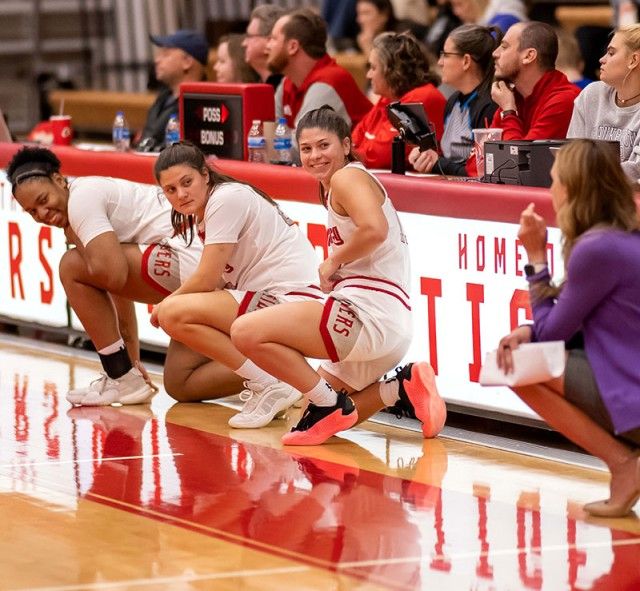The Interfraternity and Panhellenic Councils partnered with the Lesotho Nutrition Initiative (LNI) during Greek Week 2021, Oct. 25-30, to pack meals for children suffering from severe malnutrition in Lesotho.
More than 100 Wittenberg students packed over 25,000 meals during the event that took place from 1 to 6 p.m. on Saturday, Oct. 30, in room 105 of the Joseph C. Shouvlin Center for Lifelong Learning. Annual competitions and events during Greek Week are designed as a way for Wittenberg students to give back to the Springfield community. Throughout the week, sorority and fraternity chapters were split into teams and competed to earn the most points.
“All of the Greek houses participated in the event with two houses going at a time in hour-long shifts,” said Scott Rosenberg, H.O. Hirt Professor of History, chair of the department, chair of Wittenberg’s Peace Corps Prep Program and Honorary Consul to the Kingdom of Lesotho. “It’s really great to see students wanting to make a difference and to see the spirit of giving back. It’s great seeing how packing meals with LNI has become part of our campus culture. People know what Lesotho is and feel a connection to the place.”
LNI, founded by Rosenberg, is a 501(c)(3) non-profit organization created by a small group of Wittenberg students and faculty members. The student-led organization provides more than 500,000 meals a year to more than 3,000 children in Lesotho, a country of slightly more than two million with an estimated 200,000 orphans and an estimated 35 percent of children under the age of five years who suffer from severe malnutrition and stunting. Only 11 percent of Basotho children aged six to 23 months fall into the criteria for a minimum acceptable diet.
“LNI was first introduced to me by my fraternity brother, Aaron Moore, when he suggested we go to the weekly packs more often. It's an enjoyable experience knowing that every bag sealed and every box packed are actual meals directly going to help children that need it,” said Oliver Gietzen, class of 2022 and of Wayne, Michigan, who is majoring in graphic design with minors in art history and creative writing. Gietzen is a peer mentor and vice president of both the Beta Theta Pi fraternity and Gender and Sexual Diversity Alliance (GSDA).
LNI partners with organizations all across Lesotho to combat childhood malnutrition, providing meals that contain nutritional supplements to children in Lesotho who have been diagnosed as suffering from severe/chronic malnutrition and stunting, also known as wasting. Since its founding in 2014, LNI has raised more than $500,000 to date, partnered with more than 30 schools, universities, churches, and businesses in the Midwest for approximately 120 packing events – an average of 25 to 30 events per year – and has packed more than 2.65 million meals reaching all corners of Lesotho.
“I am looking forward to reaching three million this year and being able to do the 24-hour pack-a-thon on campus this spring,” Rosenberg added.
Since 2003, more than 500 Wittenberg students and community members have participated in a service-learning trip to Lesotho through another program founded by Rosenberg. Participants spend four weeks in service, building houses, planting gardens, creating playgrounds, and volunteering at orphanages and a pediatric AIDS clinic, among other activities. Many of the sites the students volunteer at are projects begun by Springfield Rotary, and now both groups work together toward their sustainability. Lesotho holds a special place in the hearts of many Wittenberg students either through participation in service trips, fundraising for service trips or through LNI, prompting King Letsie III, the Constitutional Monarch of the southern African Kingdom of Lesotho, to deliver the keynote address at Wittenberg’s class of 2018 Commencement exercises.
The meals provided prove not only to halt malnutrition, but also to reverse the long-term effects. Most of the children who receive LNI meals on a daily basis are under the age of five. Without proper nutrition, their brains will not fully develop, robbing them of their full human potential. Many of the children who receive the meals are also HIV+ and/or orphans. To learn more about LNI, click here.








